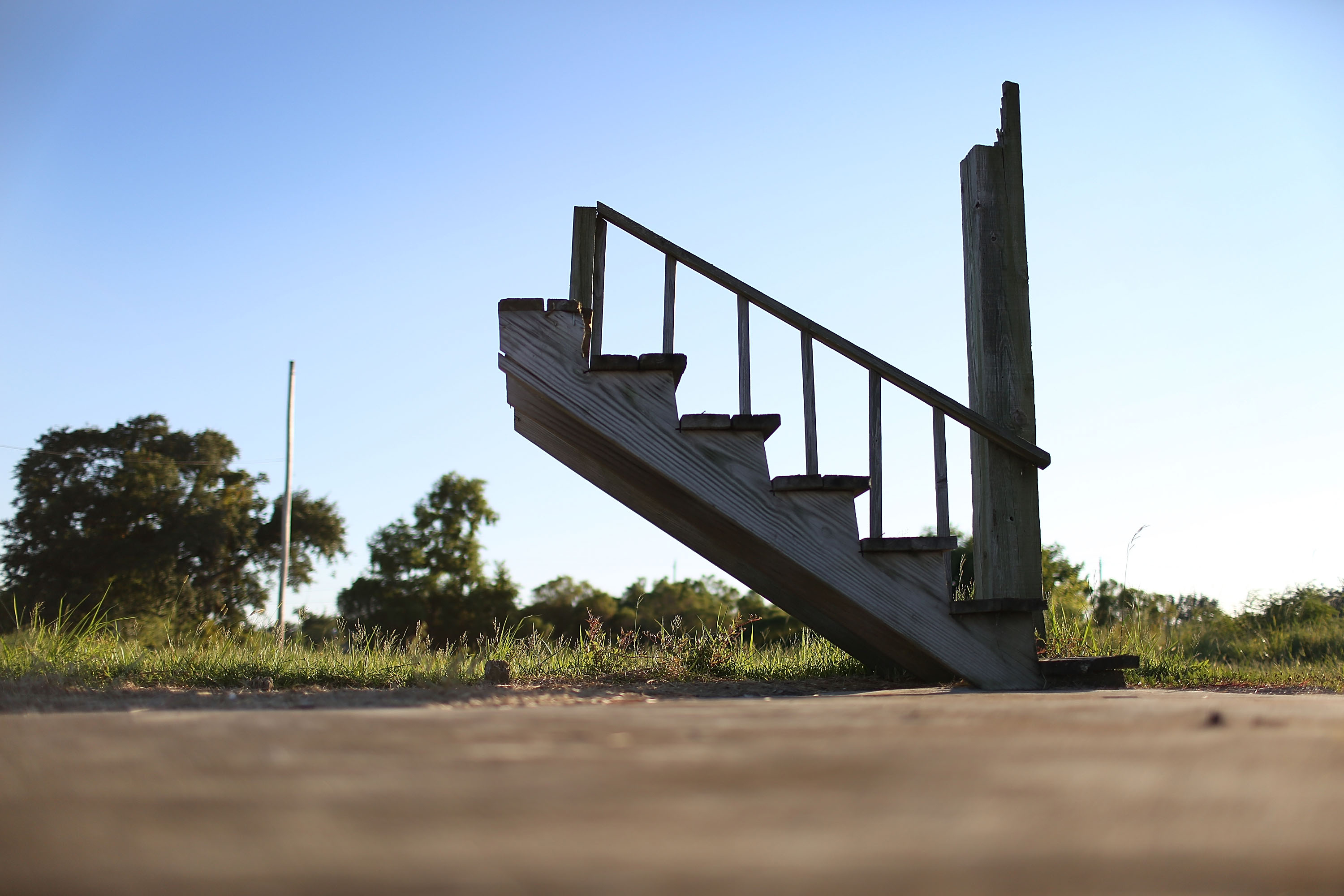
A stairway is seen still standing 10 years after Hurricane Katrina destroyed the house on August 28, 2015 in Waveland, Mississippi. (Photo by Joe Raedle/Getty Images)
In marking the 10 years since the devastation of Hurricane Katrina reached the Gulf shores, it is the actions of government authorities since the storm that have been nearly as catastrophic for residents of the Gulf Coast. As highlighted by the ongoing work of the local communities through #GulfSouthRising, the issues documented in Amnesty International’s 2005 report, Un-Natural Disaster: Human rights in the Gulf Coast still profoundly impact Gulf Coast residents’ right to return.
While Hurricane Katrina took the lives of more than 1,800 people from this area, approximately 200,000 people were displaced from the Gulf Coast region to Texas, Florida, Georgia, and Washington, D.C. Prior to the catastrophic effects of Hurricanes Katrina and Rita, the populations of the Gulf Coast states suffered from a severe lack of access to adequate housing. During the immediate aftermath of the storms, this access was even further compromised, and the Federal, state and local governments were slow to rectify the situation. In New Orleans, actions taken by local authorities worsened the situation for its residents.
Now, ten years since the initial destruction of Katrina, a lack of access to adequate housing has contributed to preventing the overall return of former residents (known under international human rights standards as internally displaced persons (IDPs)). The recovery process was plagued by the demolition of public housing; a lack of a commitment to rebuild lost rental units and provide affordable housing for residents; and authorities’ inability to disburse enough money for homeowners to rebuild or to do so in a timely fashion. These issues have created a climate where many former Gulf Coast residents cannot afford to return, leading to permanent displacement.
The long term result of those obstacles is evident in New Orleans today. Due mostly to the destruction and lack of one-for-one replacement of the public housing units contained in the St. Bernard, B.W. Cooper, C.J. Peete and Lafitte public housing developments, there are fewer low income public housing apartments in New Orleans than what existed in 2005. The “Big Four” developments alone contained nearly 4500 units, more than 3000 of which were occupied prior to Katrina. In 2015, the Housing Authority of New Orleans reports having 1925 total public housing apartments available for low income people, over 3000 less than what existed prior to the storm, meaning that thousands of former public housing families and residents in New Orleans were not provided a home to which to come back. Complicating matters further, the costs of housing in New Orleans have also risen precipitously since Katrina, with rents for two bedroom apartments rising 40% over the past ten years, pricing out any residents who stayed or returned from living in their former neighborhoods — even with the use of housing vouchers, which were expanded as a compromise to the loss of public housing stock. The long term effects of this “Un-Natural Disaster” are clear – thousands of New Orleans and Gulf Coast residents have been permanently displaced.
As the events organized by #GulfSouthRising bring attention to the human rights and environmental issues that continue to impact Gulf Coast residents, local authorities must work with its community to address the ongoing housing issues in New Orleans by ensuring enough adequate housing to facilitate IDP’s right to return.
Hurricane of Katrina serious matter because a lot of people mission and casualty damage houses financial losses etc. I suggest written an article what cause of hurricane Katrina
everybody know and knowledge what happen hurricane Katrina.
Displaced own family means a circle of relatives wherein each member, or whose sole member, is a person displaced by way of governmental movement, or someone whose residing has been considerably damaged or destroyed because of a catastrophe declared or otherwise writing dissertation online formally recognized pursuant to federal disaster relief legal guidelines.
Best wishes the windows 10 site it is change startup password windows 10 great popular site in the world.